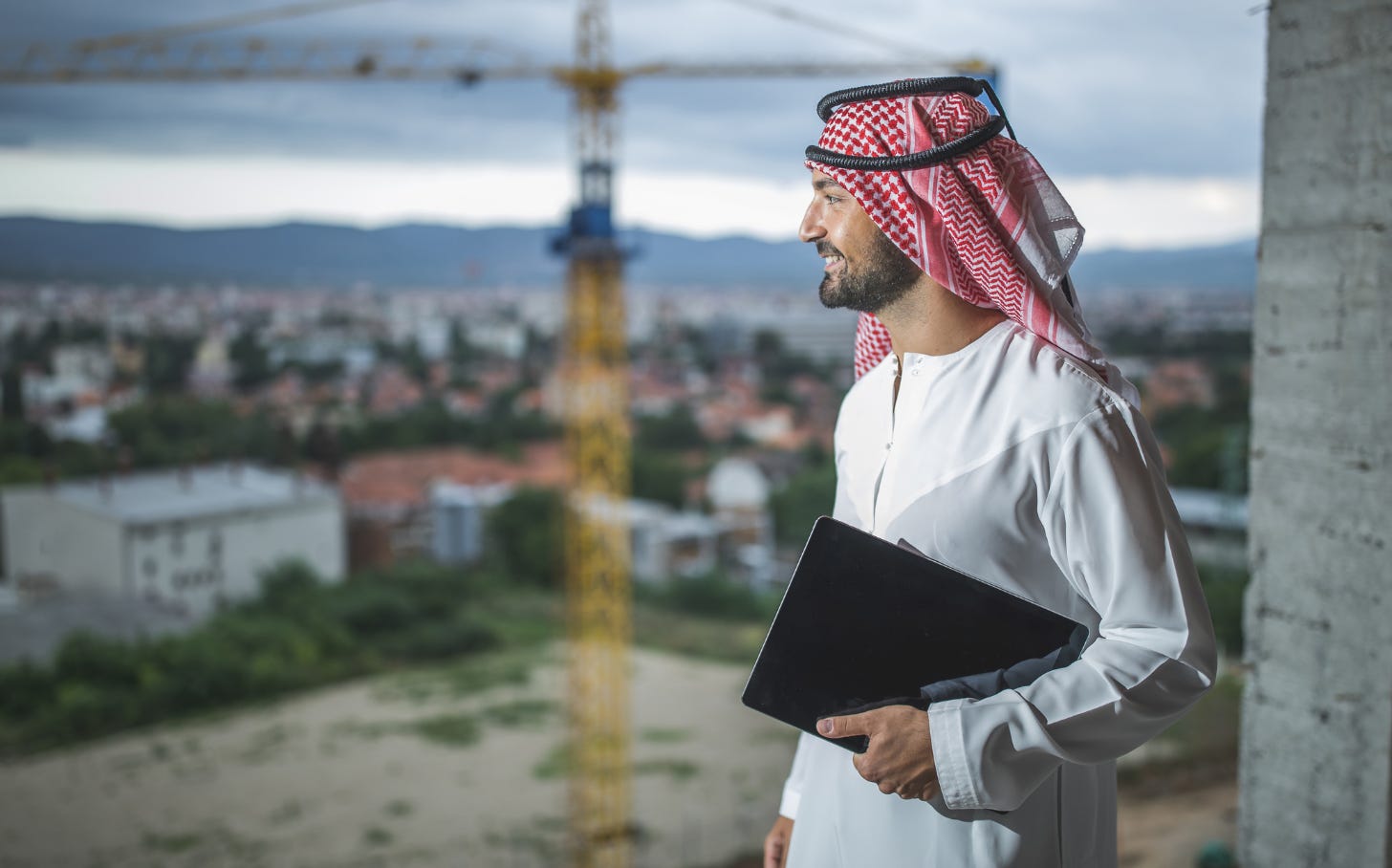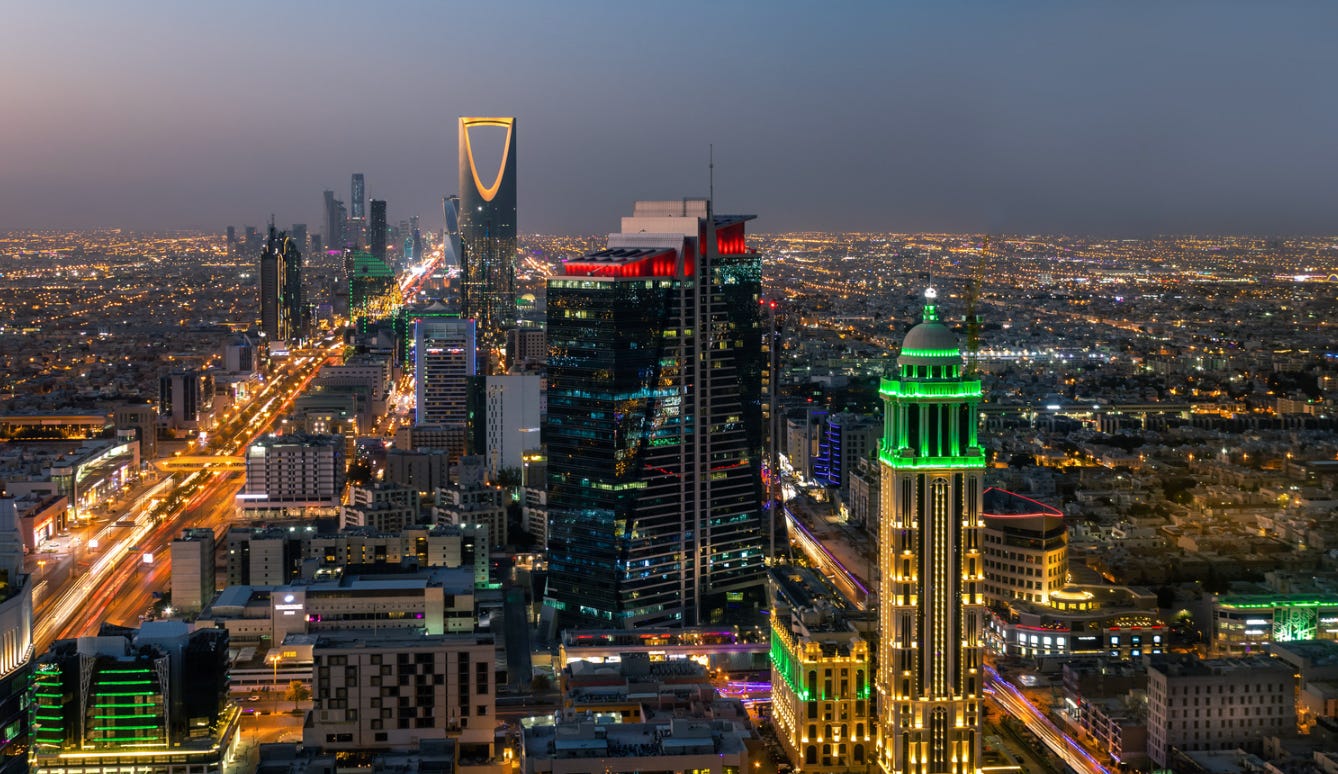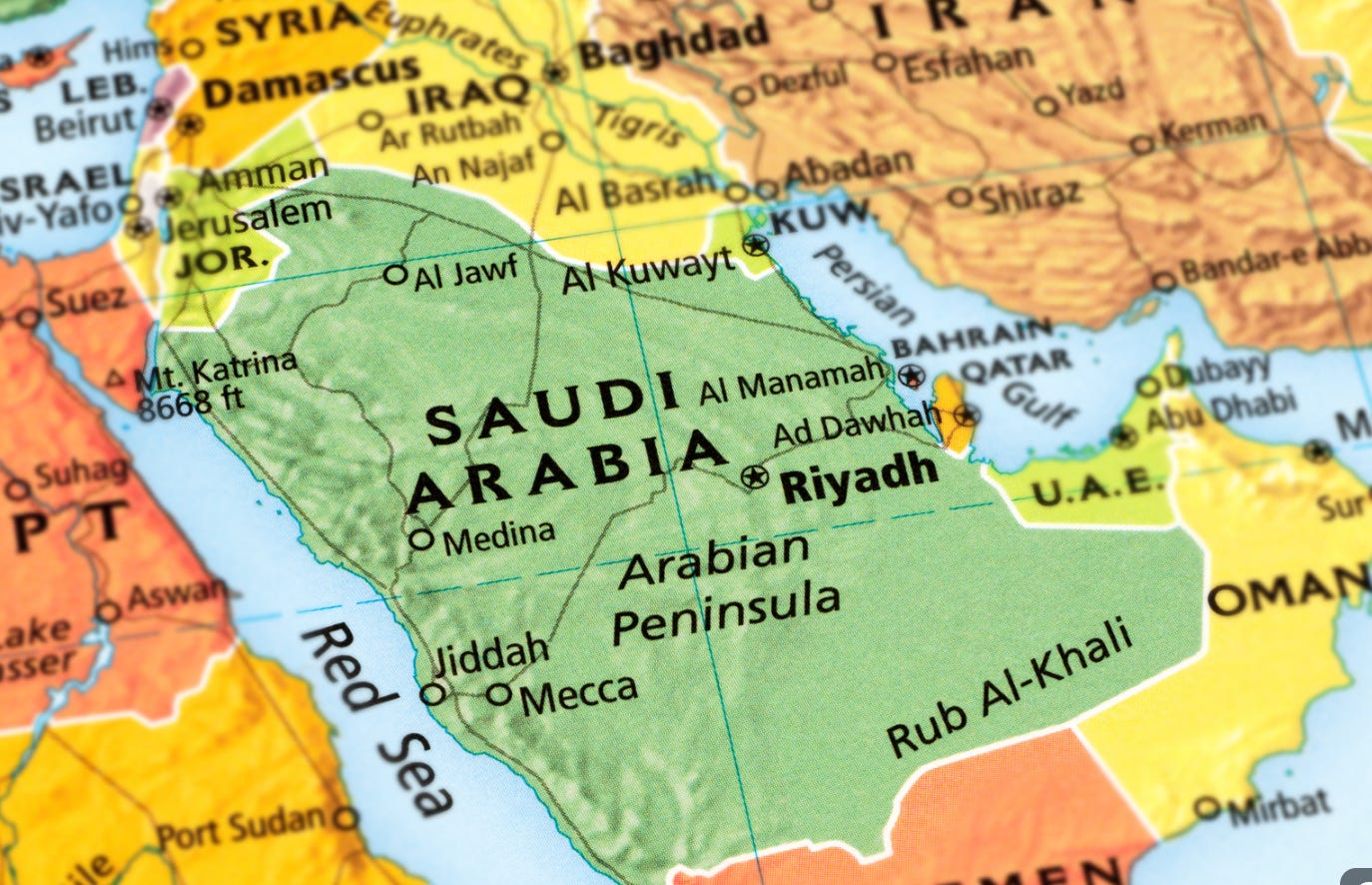The Gulf's AI Arms Race Is Just Getting Started
From the UAE's Falcon to Saudi Arabia's $40 billion bet, the Middle East is turning AI into a geopolitical power play. This isn't just tech—it's a high-stakes game of influence.

From studying abroad in Cairo to my work as a U.S. diplomat in Jeddah, something always draws me back to the Middle East. This time, I’m tracking the AI race, and you should be paying attention too. It’s not just about industry—it’s about power and influence.
Last year, the UAE shocked the world with its development of Falcon, the first large-scale state-supported AI model. TIME Magazine named Faisal Al Bannai, Secretary General of the Advanced Technology Research Council in UAE, to its TIME 100 Most Influential People in AI for 2024. However, the Saudis weren’t about to be outdone by their neighbors.
In March, Saudi Arabia announced a $40 billion fund for AI development, underscoring the Gulf’s ambition to become a regional—and potentially global—hub for AI technology. The region’s unprecedented investment in AI positions the Gulf at the forefront of this technological revolution.

However, as experts caution, money alone isn’t enough. Developing a sustainable AI ecosystem requires talent, infrastructure, and an understanding of the geopolitical complexities shaping the region. In my conversation with Dr. Chinasa T. Okolo, an AI researcher at The Brookings Institution, we explored the Gulf’s AI ambitions, their geopolitical implications, and the challenges and opportunities the region faces.
Power Play in the Gulf
Now, let me lay out some of the political backdrop to all this.
The Gulf is currently in a game of tug-of-war, where power, ego, and survival collide. Saudi Arabia, once the undisputed heavyweight, is now scrambling to maintain its grip on the region. For decades, they dominated as the keepers of Muslim holy sites like Mecca and Medina and through the economic power of oil wealth.

Then there’s Qatar, the small but relentless disruptor. They don’t have Saudi’s landmass or Dubai’s flash, but they’ve got nerve, and they’ve shown they won’t be pushed around. The 2017 blockade was a bold attempt by Saudi Arabia to squash Qatar’s growing influence, but it hasn’t stopped the small nation.
Now, every move in the region feels like a flex—who can outspend, out-develop, or outshine their neighbors? It’s no longer just about diversifying economies; it’s about being the biggest, the richest, and the most powerful. In the Gulf, where opulence is always on display, this power play isn’t just strategic—it feels personal.
Why We’re Covering the Gulf

“The Gulf sees AI as a way to diversify and secure its future beyond oil,” Dr. Okolo highlighted during our conversation. “It’s about more than just catching up with Western tech giants. The UAE and Saudi Arabia want to become global AI leaders.”
At JAM CQ, we’re closely following this story because the Gulf isn’t just dipping its toes into AI—it’s diving in headfirst, with major business opportunities on the horizon. Early adopters are already attending trade shows and scouting for opportunities. We hope to help the ambitious leaders eyeing the Gulf’s AI boom move forward with confidence and the right knowledge. We’ll go beyond the usual headlines and numbers, breaking down what’s being discussed in Arabic media and exploring the deeper geopolitical, economic, and cultural forces at play in this high-stakes race. Here are the key areas we’re tracking and why they matter:
Topics We’ll Explore:
AI Governance and Policy
Sam Altman, Open AI CEO once removed, called the UAE a “regulatory sandbox” for AI experimentation. But you need some rules or a game is no fun. Regulation will come and business leaders should be tracking how governance evolves.
Geopolitical Tensions and Alliances
The Gulf’s AI ambitions don’t exist in a vacuum. Significant geopolitical pressures are at play, especially from the U.S. and China, both vying for influence in the region. We’ll examine how these tensions shape AI development in the Gulf and their impact on global tech alliances. And it's not just China that's interested. The UAE and Norway also signed a collaboration agreement.
Local Talent and the Education Pipeline
While the Gulf is investing heavily in AI, there’s still a challenge in developing local talent.
Dr. Okolo explained, “The UAE and Saudi Arabia are actively recruiting professors and researchers from the U.S. and China to build up their AI labs, but local talent development is still a work in progress.”
We’ll explore efforts to build a talent pipeline, including investments in education and partnerships with global universities.
Cultural Impacts and AI Localization
One of the most intriguing aspects of the Gulf’s AI journey is its focus on localizing AI tools. Dr. Okolo emphasized that AI models like Falcon could democratize access to AI across the region. “By developing their own AI models, the Gulf can shape tools that reflect their cultural and economic contexts,” she said. We’ll explore how AI development in the Gulf is shaping—and being shaped by—the region’s unique cultural and political landscape.
Startups and the Innovation Ecosystem
The Gulf’s governments aren’t the only players in the AI game. Startups are emerging as key contributors to the region’s innovation ecosystem. Dr. Okolo highlighted Tunisia’s Instadeep as an example of how startups can thrive in these environments. “Instadeep’s $684 million exit was a major moment for African AI,” she noted, “and the Gulf could see similar success stories as their startup ecosystems mature.” We’ll be tracking the growth of startups in the Gulf and their contributions to the region’s AI economy.
Security and AI Sovereignty
One of the critical issues Dr. Okolo raised was security. “AI development isn’t just about economic power,” she said, “but about securing control over the technology itself.” The Gulf states are keenly aware that relying on foreign AI systems could leave them vulnerable. By developing their own models, like Falcon, the UAE is ensuring its data and critical infrastructure remain under local control.
The Analysis
The Gulf’s AI race is more than a tech story—it’s a geopolitical power play with deep implications for the region and the world. While the UAE and Saudi Arabia are pouring billions into AI, their success will depend on more than just money. Governance, talent development, and a clear strategy for navigating global geopolitical tensions will be critical.
The world should be preparing for the next wave of technological power players, not assuming that where it started—in the United States—is where it will end.
At JAM CQ, we’re excited to take you behind the headlines and explore the stories that will shape the future of AI in the Gulf. From governance to cultural impacts, we’ll bring you in-depth analysis, insights, and sometimes just a quick news roundup on how the region is navigating this new frontier in technology. Stay tuned as we continue to track the Gulf’s rise as a global AI powerhouse.
You're more cultured now because you know that the Gulf's AI race is about more than tech—it’s a geopolitical battle for dominance between the UAE, Saudi Arabia, and even Qatar.
Ready to become a paying subscriber?
If this deep dive into the Gulf's AI power plays got you thinking, we're just getting started.







